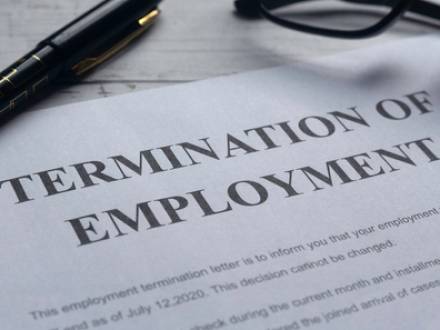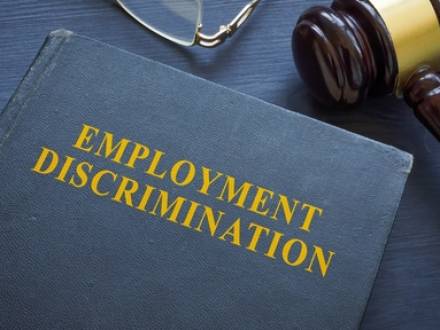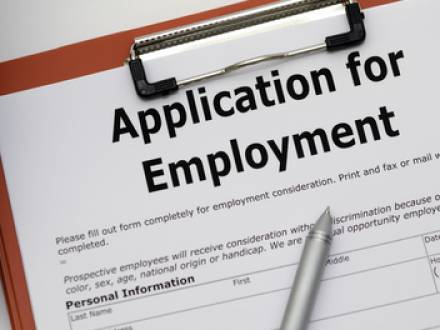Recent Blog Posts
How Can You Prove Workplace Retaliation?
 Workplace retaliation happens when your employer punishes you for doing something the law protects. Maybe you reported discrimination, filed a workers' compensation claim, or asked for family leave. If your boss then demoted you, cut your hours, or made your work life miserable, that could be illegal retaliation.
Workplace retaliation happens when your employer punishes you for doing something the law protects. Maybe you reported discrimination, filed a workers' compensation claim, or asked for family leave. If your boss then demoted you, cut your hours, or made your work life miserable, that could be illegal retaliation.
The U.S. Equal Employment Opportunity Commission reports that retaliation is now the most common claim in workplace discrimination cases, making up over 40 percent of all charges filed. This means almost half of the people who report workplace problems say their employer struck back at them for speaking up.
Proving retaliation can feel very intimidating, especially when you are worried about your job and your family's financial security. Understanding what counts as retaliation and how to document it is the first step towards getting justice.
What is Disparate Impact Discrimination?
 Most employers know that intentionally discriminating against workers based on race, sex, religion, or other protected characteristics is illegal. This kind of discrimination has been against federal law for decades. But employment discrimination does not have to happen on purpose to be illegal.
Most employers know that intentionally discriminating against workers based on race, sex, religion, or other protected characteristics is illegal. This kind of discrimination has been against federal law for decades. But employment discrimination does not have to happen on purpose to be illegal.
An important idea called "disparate impact" allows workers to hold employers responsible for illegal discrimination – without proving the employer actually meant to discriminate. Instead, workers must show that an employer's policy has a discriminatory effect on one group of protected workers. This is part of Title VII of the Civil Rights Act of 1964, which prohibits employment discrimination.
Disparate impact cases are important but difficult. If you are wondering whether you have a case, schedule a consultation with our Virginia and Maryland employment discrimination attorney.
What Is Quid Pro Quo Sexual Harassment?
 While more and more people have become aware of sexual harassment, it continues to be a problem in workplaces across Maryland and throughout the United States. For workers in Maryland, understanding what constitutes sexual harassment can be essential, and knowing how to respond can help ensure that a person will be able to protect their rights and their career. In 2026, people should be prepared to address sexual harassment correctly, whether they have experienced it directly or have witnessed it in the workplace.
While more and more people have become aware of sexual harassment, it continues to be a problem in workplaces across Maryland and throughout the United States. For workers in Maryland, understanding what constitutes sexual harassment can be essential, and knowing how to respond can help ensure that a person will be able to protect their rights and their career. In 2026, people should be prepared to address sexual harassment correctly, whether they have experienced it directly or have witnessed it in the workplace.
One particularly damaging form of workplace harassment is quid pro quo sexual harassment. This type of harassment occurs when someone in a position of power uses that authority to demand sexual favors. Quid pro quo harassment is considered to be illegal sex discrimination, and workers who experience it have legal options that will allow them to hold their employers accountable and address the harm they have suffered due to this form of harassment. An experienced attorney can provide guidance and representation in these cases, helping to protect the rights of sexual harassment victims.
What Maryland Employers Can Ask in Workplace Investigations
 When a complaint lands on an employer’s desk, a workplace investigation may be necessary. Regardless of what type of complaint (retaliation, misuse of company resources, harassment, etc.), answers must be obtained quickly. Yet one wrong question to an employee can potentially expose the company to claims of retaliation, coercion, or even unlawful disability or medical inquiries.
When a complaint lands on an employer’s desk, a workplace investigation may be necessary. Regardless of what type of complaint (retaliation, misuse of company resources, harassment, etc.), answers must be obtained quickly. Yet one wrong question to an employee can potentially expose the company to claims of retaliation, coercion, or even unlawful disability or medical inquiries.
Maryland employers have specific boundaries that must be adhered to when interviewing employees. Employer questioning is limited by discrimination laws, wage statutes, whistleblower protections, and privacy rules, and employers must know which questions are legally "safe," which require caution, and which are strictly off-limits. An experienced Potomac, MD employment attorney can help ensure you stay within the law when you question employees.
Why Do Interview Questions Matter?
An internal investigation could be required to stop harassment, prevent further harm, satisfy federal obligations, or mitigate damages. Regardless of the reason for the internal investigation, employers must balance a prompt, thorough investigation with avoiding any violations of employee rights during the investigation.
Joint Employees and Harassment: Who Is Responsible?
 Today’s workplaces can be more complex than ever. Temp workers, subcontractors, franchise employees, and staffing-agency placements often answer to more than one boss and may operate under joint-employment arrangements. This means that two or more entities control different aspects of the employee’s work.
Today’s workplaces can be more complex than ever. Temp workers, subcontractors, franchise employees, and staffing-agency placements often answer to more than one boss and may operate under joint-employment arrangements. This means that two or more entities control different aspects of the employee’s work.
So, what happens and who is legally responsible when workplace harassment occurs? Is the staffing agency liable? The host employer? The parent corporation? The franchise owner? Or is it all of these entities? If you have experienced harassment in a joint employment situation, you may rightfully feel trapped. Who do you report the behavior to?
Meanwhile, each employer may be doing their best to shift blame to the other, leaving you unsure of your rights. Understanding how joint employment affects workplace harassment claims is essential for workers and employers navigating the modern workforce. A Fairfax, VA employment attorney can help you determine who is liable for the harassment you have suffered in the workplace.
Maryland Employees and the Rise of "Quiet Terminations"
 While you may not have been fired from your Maryland job, your hours have been slashed, your responsibilities minimized, and you are no longer invited to meetings by your manager. By any metric, you are being pushed out of your job. This growing workplace tactic is known as "quiet termination" or "quiet firing," and allows employers to sidestep the legal fallout that a formal dismissal could bring.
While you may not have been fired from your Maryland job, your hours have been slashed, your responsibilities minimized, and you are no longer invited to meetings by your manager. By any metric, you are being pushed out of your job. This growing workplace tactic is known as "quiet termination" or "quiet firing," and allows employers to sidestep the legal fallout that a formal dismissal could bring.
However, quiet terminations can still carry serious legal consequences. If the employee feels that the environment is so intolerable that he or she is forced to resign, Maryland employment law may see the situation as "constructive discharge." Constructive discharge is a wrongful act by an employer that gives employees potential grounds for a wrongful termination claim.
Perhaps you feel you are being quietly terminated, or you left a job because of these tactics. If so, it is important that you speak to a knowledgeable Ellicott City, MD employment law attorney to discuss your next steps. You may have a strong case for constructive discharge, but having an experienced legal advocate by your side is essential.
Maryland Severance After a Hostile Work Complaint
 If you are a Maryland employee who reported harassment or a hostile work environment, your employer’s next move may determine whether your situation will end with accountability or silence. Some employers will offer severance pay as a means of "encouraging" a quick, quiet separation.
If you are a Maryland employee who reported harassment or a hostile work environment, your employer’s next move may determine whether your situation will end with accountability or silence. Some employers will offer severance pay as a means of "encouraging" a quick, quiet separation.
While a severance package can provide financial relief, it can also include a broad legal release that diminishes your right to pursue a claim under the Maryland Fair Employment Practices Act or Title VII of the Civil Rights Act. Before you sign anything, it is important to understand how severance works in this type of case, and why it could actually protect your employer more than yourself. A Howard County, MD employment law attorney can help ensure your rights and your future are properly protected.
Weight Bias at Work: Are Maryland Employees Protected?
 Most of us would assume that firing someone for being overweight would clearly violate anti-discrimination laws. In reality, the subject is not nearly so clear-cut. Federal laws do not specifically prohibit weight-based discrimination, but some Maryland counties have recently taken steps to protect workers from bias associated with appearance or body size.
Most of us would assume that firing someone for being overweight would clearly violate anti-discrimination laws. In reality, the subject is not nearly so clear-cut. Federal laws do not specifically prohibit weight-based discrimination, but some Maryland counties have recently taken steps to protect workers from bias associated with appearance or body size.
Even though Maryland does not yet have a statewide "weight discrimination" statute, several local ordinances (Montgomery County, for one) have expanded protections for employees based on body size or appearance. If you are an employee who has been demoted, mocked, or terminated because of your weight, understanding the boundaries of the law is critical, and you may have more rights than you think. Consulting with a highly skilled Bethesda, MD employment law attorney ensures that your rights will be fully protected.
Maryland’s Ban the Box Law: What Job Seekers Should Know
 If looking for a job were not stressful enough, applicants with a criminal record can feel as though the system is stacked against them before they ever reach the interview stage. Maryland’s "Ban the Box" (Maryland Labor and Employment Article Section 3-1501) law helps those with a criminal record by limiting when employers can ask an applicant about his or her criminal history.
If looking for a job were not stressful enough, applicants with a criminal record can feel as though the system is stacked against them before they ever reach the interview stage. Maryland’s "Ban the Box" (Maryland Labor and Employment Article Section 3-1501) law helps those with a criminal record by limiting when employers can ask an applicant about his or her criminal history.
The goal is to allow candidates to present their qualifications and skills before facing questions about their past. As of mid-2025, 37 states and the District of Columbia have adopted some form of Ban the Box (also called Fair Chance in some states) hiring laws, primarily for public-sector employers. About 15 states, including Maryland, have extended those laws to the private sector.
The name, "Ban the Box," for Maryland’s law comes from the practice of removing the checkbox on employment applications that asks applicants whether they have a criminal conviction. If you have questions regarding Maryland’s Ban the Box law, it can be beneficial to speak to an experienced Silver Spring, MD employment lawyer.
Moonlighting in Maryland: Can Your Employer Limit a Second Job?
 Perhaps you are adding a bit to your monthly income by being a DoorDash driver, an Uber or Lyft driver, a freelance construction worker or consultant, running your own small business on the side, or any number of other "side hustles." It is understandable; with housing, medical, and grocery costs so high, families are unable to pay their most basic bills without a supplemental income.
Perhaps you are adding a bit to your monthly income by being a DoorDash driver, an Uber or Lyft driver, a freelance construction worker or consultant, running your own small business on the side, or any number of other "side hustles." It is understandable; with housing, medical, and grocery costs so high, families are unable to pay their most basic bills without a supplemental income.
What if your regular employer finds out you are working a second job? Can you legally be stopped from moonlighting – or even worse, lose your regular job because of it? Maryland’s employment laws create a complex balance between an employer’s right to protect its business interests and an employee’s right to earn a living.
Understanding the rules regarding moonlighting in Maryland is essential in the event your employer finds out about your second job and threatens to take action against you. A Potomac, MD employment law attorney can help you choose how to respond to your employer based on the law.













